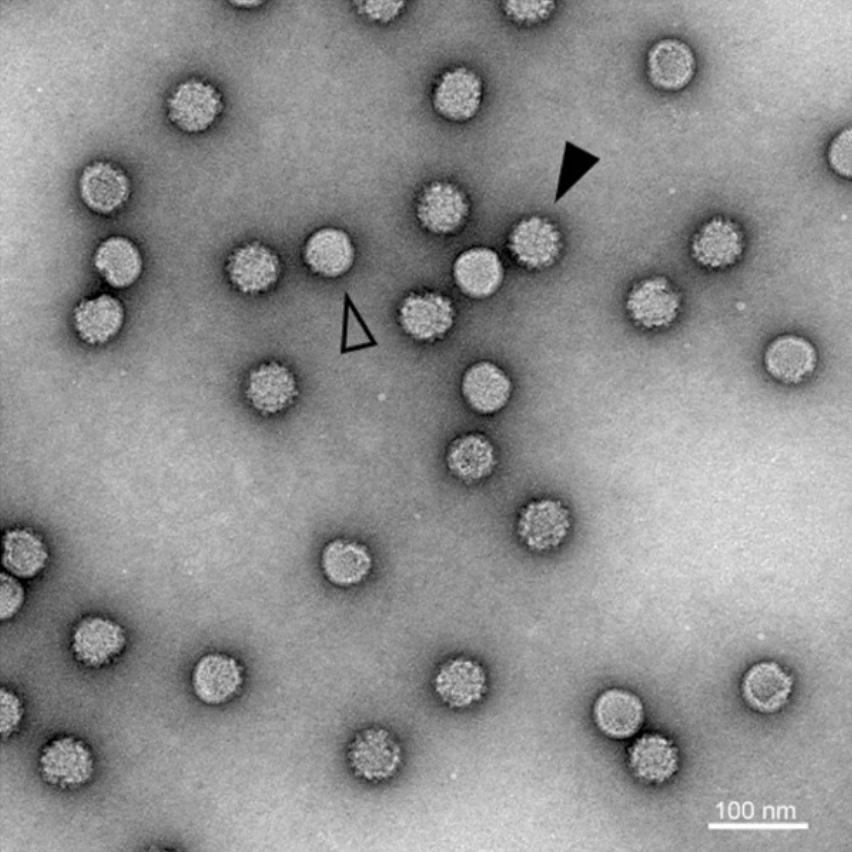RI behind a new dengue vaccine patch

Microscope image of the chimeric dengue and Binjari virus particles at ×30,000 magnification. Photo credit: Choo, J.J.Y., et al. npj Vaccines 6, 66 (2021)
Dengue is the most significant mosquito-borne viral disease in the world, with around 390 million cases annually.
Dr David Miller and the vaccine team at the University of Queensland have used Microscopy Australia’s facility in the development of a promising dengue vaccine.
The goal is to produce one vaccine that will protect against all four known strains of dengue, which can cause severe disease. They’re also using a new type of vaccine delivery invented in Australia – a ‘patch’, rather than traditional needles – which generates strong immune responses.
Pre-clinical trials have had great success, and the research team is hoping to adapt this technology to treat other viruses including Zika, West Nile and Japanese encephalitis.
This new vaccine – and the vaccine patch – are enabled by the Department of Education’s National Collaborative Research Infrastructure Strategy (NCRIS). The program makes research infrastructure accessible by investing in equipment, online datasets and tools, and technical expertise.
Learn more about research infrastructure on a global scale at the International Conference on Research Infrastructures in Brisbane in December. Sessions will include discussions about ‘Global collaboration in biosecurity and pandemic preparedness’ and ‘Institutional and policy frameworks for inclusive research infrastructure collaborations’.
We acknowledge the Traditional Owners of the lands and waters throughout Australia, and pay respect to the Elders past, present and emerging. We recognise the importance of connection to culture, land, kinship and community to the health and wellbeing of Aboriginal & Torres Strait Islander families. We acknowledge the cultural practices and traditions still carried out today and being passed down to future generations.


